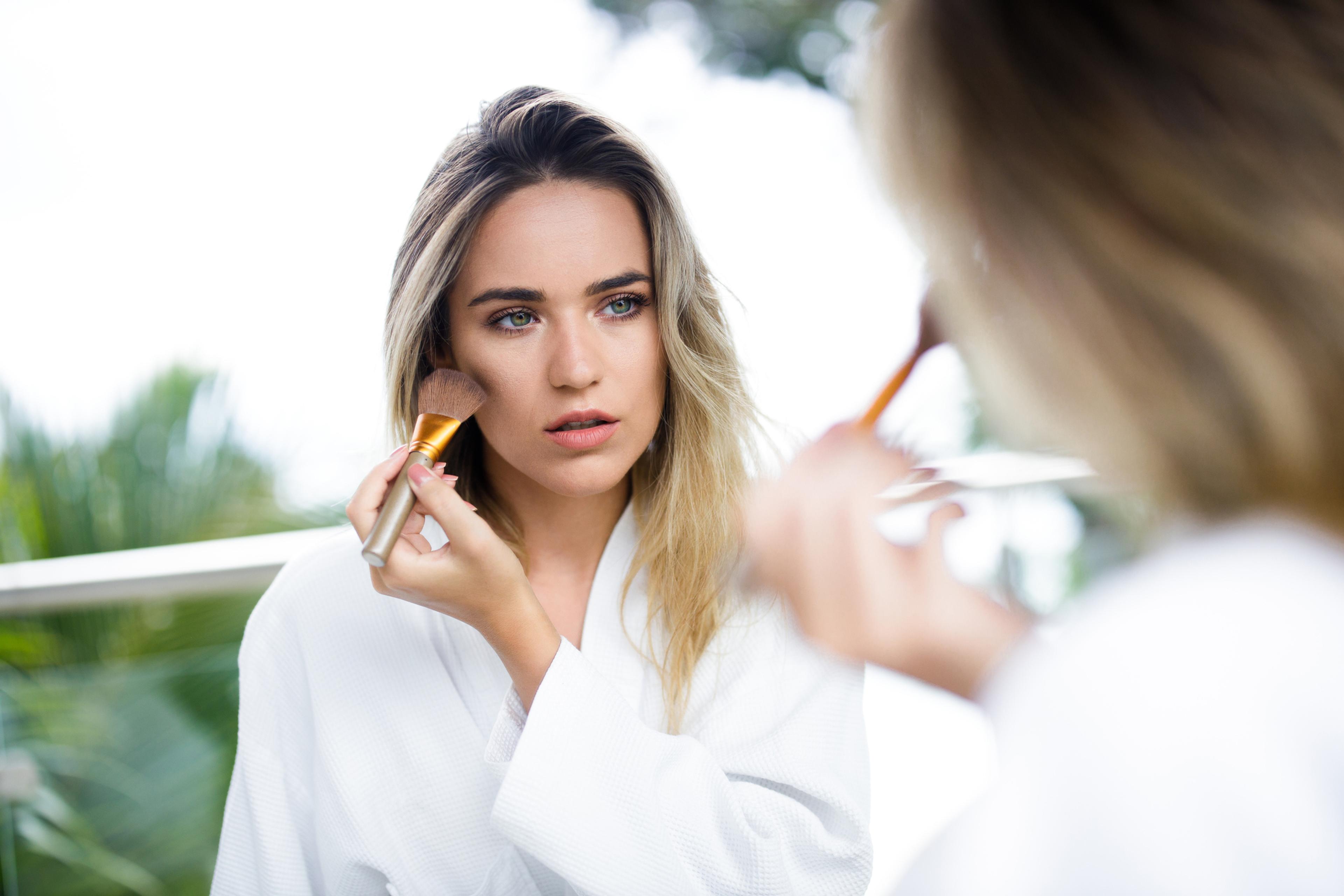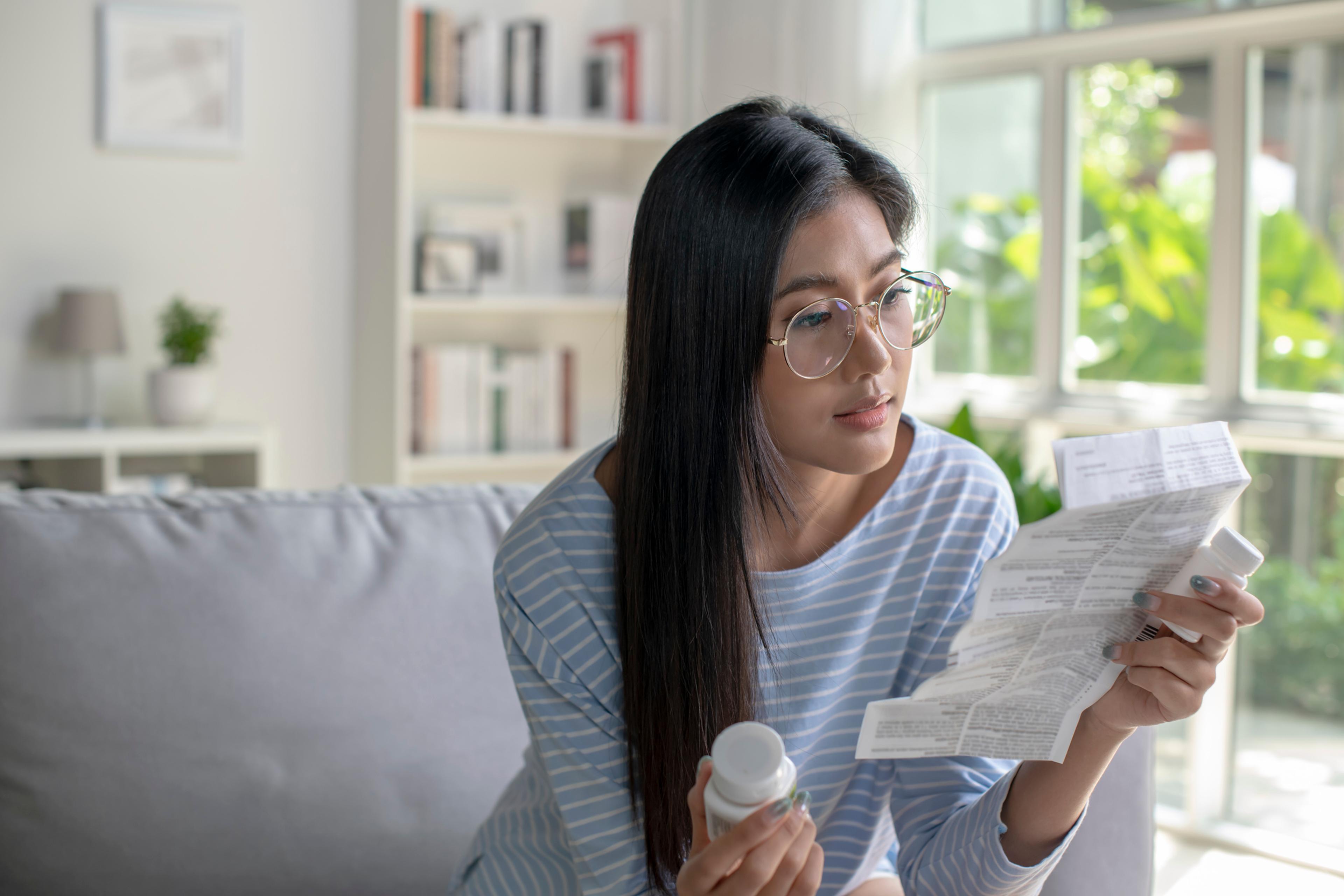Is the SPF in Your Makeup Enough to Protect Your Skin?
Dr. Crystal Lee, M.D.
| 3 min read
Crystal R. Lee, MD, FACP, CPC-A, CHCQM is a Medical ...

Key Takeaways
- Daily sun protection is crucial to prevent skin cancer and signs of aging, with one in five Americans developing skin cancer by age 70.
- Cosmetics with SPF can provide added protection from UV rays, but are not enough on their own and should be used along with sunscreen.
- To ensure adequate sun protection, apply a broad-spectrum lotion sunscreen with at least SPF 30 to face, ears and neck daily, and reapply every two hours or after swimming, sweating or toweling off.
Skin cancer is the most common form of cancer in the United States, with about one in five Americans developing some form of the cancer by age 70.Daily sun protection is the most important way to block harmful ultraviolet (UV) radiation to prevent skin cancer and signs of aging.
To meet demand for healthy skin care, beauty companies are creating cosmetics that include sun protection of 15 and higher, but do these products work? Here is a look at the SPF makeup options, the effectiveness of these cosmetics and how individuals can protect themselves from sun damage and skin cancer.
SPF in cosmetics
Increasingly, cosmetics such as tinted moisturizer, powder and liquid foundation, blush and lip balm are available with SPF 15 to 45. These products can provide some sun protection but are not enough on their own.
Moisturizer and makeup have a thinner or lighter consistency than most types of sunscreens. To get the full benefits of the cosmetics, individuals would have to apply a thick layer. Beauty trends lean toward bright, dewy skin and a “no-makeup makeup” look, so individuals are unlikely to apply enough of the moisturizer or foundation to provide adequate sun protection. They are also unlikely to add the product to their neck and ears.
Choosing the right sunscreen
Sunscreens are available in lotions, sprays, sticks and powders. There are two types of sunscreen: chemical and mineral. Both work to protect the skin from UV-A and UV-B rays. Chemical sunscreen is easier to rub into the skin and can feel lighter than mineral sunscreen. Mineral sunscreen may leave a white sheen on the skin and can be better for people with skin conditions such as eczema.
The higher the SPF, the greater the protection from UV rays. It’s important to use a broad-spectrum SPF of at least 50 if spending time outside. For lotion sunscreen, an individual should apply a nickel’s worth to their face, ears and neck. A stick or spray sunscreen can provide sun protection while not disturbing makeup. Use four passes of the stick or apply spray sunscreen until a sheen appears on the skin, according to the American Academy of Dermatology. For aerosol versions, apply the spray to the hands and then the skin to avoid inhalation.
Powder sunscreen products can claim to provide sun protection while not disturbing makeup. Like SPF makeup, these products need a thick layer to be protective. Powder SPF can be adequate for touchups over makeup but should not be used as the only form of sun protection. While wearing and reapplying sunscreen can be a challenge with makeup, sun damage will prematurely age the skin. Wearing sunscreen is an easy and effective way to keep skin healthy.
Ultimately, cosmetics with SPF can provide added protection from UV rays when used with other types of sunscreens. The Skin Cancer Foundation offers a tool to find recommended products, including cosmetics.
How to apply SPF for daily use
For adequate sun protection:
- Apply a nickel-sized amount of broad-spectrum lotion sunscreen with at least SPF 30 to face, ears and neck after washing and moisturizing every morning.
- Apply makeup and use a setting spray if desired. For those using powder sunscreen, it should be the top layer.
- Apply a shot-glass worth of lotion sunscreen to arms, legs and exposed skin if spending significant time outdoors.
- Reapply sunscreen to face and body every two hours or immediately after swimming or sweating or toweling off.
- Wear UV-blocking sunglasses, a brimmed hat and UPF protective clothing in addition to sunscreen.
Dr. Crystal Lee is a medical director of Clinical Decision Support at Blue Cross Blue Shield of Michigan. For more health tips and information, visit MIBlueDaily.com.
Image: Getty Images
Related:





